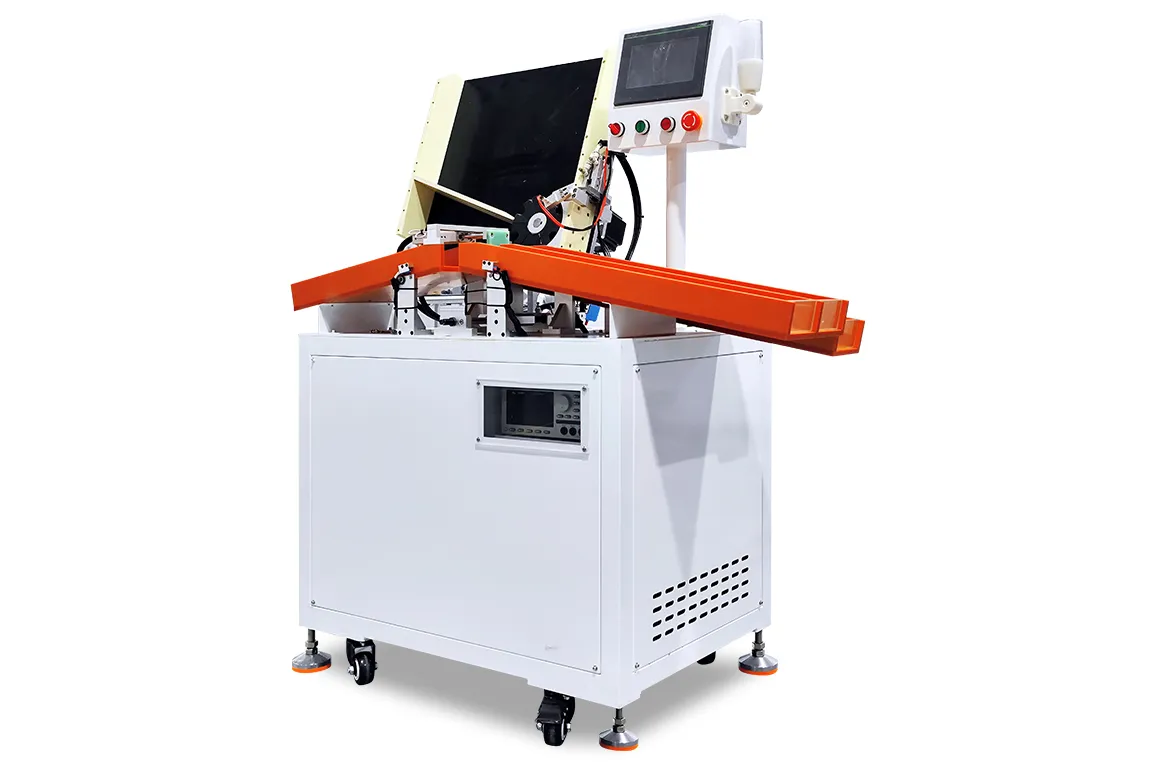The 18650 Cylindrical Battery Five-Channel Sorting Machine is an automated system designed for sorting and testing lithium-ion 18650 cylindrical battery cells. It performs precise voltage and internal resistance tests on the cells after capacity grading, ensuring that only high-quality batteries are selected for assembly into battery packs. This machine is widely used in the battery manufacturing industry, especially for applications such as electric vehicles, energy storage, and power tools.

Key Parts of the 18650 Cylindrical Battery Five-Channel Sorting Machine
Modular Electrical Control System
High integration, easy maintenance, and versatile, ensuring reliable operation for a variety of battery types.
Servo Motor Control Mechanism
Provides high precision and consistency during the sorting process.
High Precision Voltage and Internal Resistance Test System
Automatically tests and sorts battery cells based on voltage and internal resistance thresholds.
Five Sorting Channels
Allows sorting into five different bins, each corresponding to specific voltage and internal resistance values.
High sorting efficiency with flexibility in setting thresholds for each channel.
Robotic Arm and Manual Collection System
Automates the sorting of cells while manual collection of sorted batteries ensures smooth workflow.
How to Use the 18650 Cylindrical Battery Five-Channel Sorting Machine
Setup
Connect to a 220V power supply and ensure compressed air source is set to 0.5–0.6 MPa.
Place 18650 battery cells in the input tray.
Configuration
Set voltage and internal resistance parameters for each of the five channels.
Define sorting criteria for each channel to categorize cells into different bins.
Operation
Start the machine, allowing the robotic arm to sort the cells automatically.
The system will test each cell and place it in the corresponding channel according to the set thresholds.
Manual Collection
After sorting, manually collect the sorted cells for further assembly or processing.
Maintenance
Clean the testing equipment and robotic arm regularly to maintain optimal performance.
Automated Process Flow
Input: Place battery cells into the feeding tray.
Testing: Voltage and internal resistance are tested by the integrated precision system.
Sorting: The robotic arm sorts the cells into one of the five channels based on the test results.
Collection: The sorted cells are manually collected.
Output: The sorted cells are ready for further assembly or quality checks.
Benefits of the 18650 Cylindrical Battery Five-Channel Sorting Machine
High Efficiency
Capable of testing and sorting up to 4000 battery cells per hour, enhancing production efficiency.
High Precision
The automated system ensures accurate voltage and internal resistance measurements for consistent battery quality.
Automation
Reduces human error and ensures uniform sorting across all cells.
Cost-Effective
Low power consumption (≤200W) and a modular design make the machine highly cost-effective.
Versatility
Supports a wide range of 18650 cylindrical battery types and can be customized to fit different sorting needs.
Compact Design
The compact size (1200mm x 800mm x 1200mm) allows easy integration into existing production lines.
Important Considerations
Battery Compatibility
Ensure that the batteries' voltage and internal resistance match the machine's sorting criteria for accurate results.
Calibration
Periodically calibrate the voltage and internal resistance testing system to maintain accuracy.
Routine Maintenance
Regular cleaning and maintenance are essential to ensure the robotic arm and test systems continue to perform at their best.
Power Supply
Ensure a stable AC 220V power supply for smooth machine operation.
Conclusion
The 18650 Cylindrical Battery Five-Channel Sorting Machine is a highly efficient, precise, and reliable solution for automating the sorting of lithium-ion battery cells. With its advanced features like high-precision voltage and internal resistance testing, five sorting channels, and robotic automation, this machine helps ensure consistent, high-quality battery production. It is an essential piece of equipment for large-scale battery manufacturers looking to optimize their sorting and testing processes.



